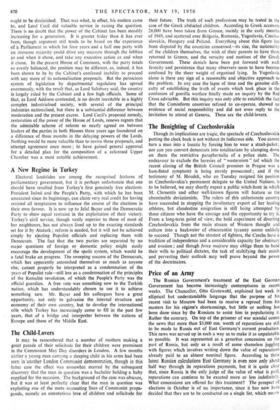A New Regime in Turkey
Electoral landslides are among the recognised features of parliamentary government, but it is perhaps unfortunate that one should have resulted from Turkey's first genuinely free elections. President Inonil and the People's Party, with which he has been associated since its beginnings, can claim very real credit for having resisted all temptations to influence the course of the elections in their own favour. It is now up to Jelal Bayar and the Democratic Party to show equal restraint in the exploitation of their victory. Turkey's civil service, though vastly superior to those of most of her neighbours, has not always lived up to the exacting standards set for it by Ataturk ; reform is needed, but it will not be achieved simply by ejecting Populist officials and replacing them with Democrats. The fact that the two parties are separated by no major questions of foreign or domestic policy might easily encourage the development of the spoils system, which would be a fatal brake on progress. The sweeping success of the Democrats, which has apparently astonished themselves as much as anyone else, cannot properly be interpreted as a condemnation of the years of Populist rule—still less as a condemnation of the principles of the Kemalist revolution, of which the People's Party was the official guardian. A free vote was something new to the Turkish nation, which has understandably chosen to use it to achieve something new. Mr. Bayar and his colleagues have a great opportunity, not only to galvanise the internal structure and economy of their own country, but to develop the international role which Turkey has increasingly come to fill in the past few years, that of a bridge and interpreter between the nations of Europe and those of the Middle East.










































 Previous page
Previous page